The 10 best sci-fi films — from Star wars to Logan’s Run
As the latest instalment of the fabled Dune franchise is released, we rate the greatest science fiction movies you really need to see.
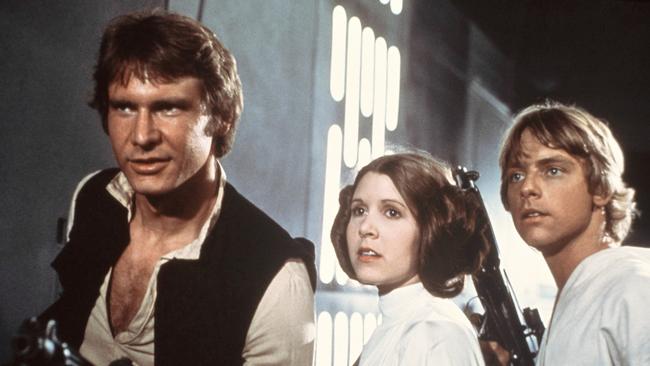
As the latest instalment of the fabled Dune franchise is released, we rate the greatest science fiction movies you really need to see.
1. STAR WARS (1977)
It’s the one. The only one. It’s the one that got Dune right, for a start. It neatly absorbed that classic novel’s desert planet setting (Arrakis), mystical mumbo jumbo (the Voice) and obsession with the mineral “spice” into an entirely different desert planet setting (Tatooine), more mystical mumbo jumbo (the Force) and a curious interest in “spice” (Anakin Skywalker was a “spice freighter” navigator). But it absorbed other things too: Flash Gordon serials, the novels of Tolkien and Edgar Rice Burroughs, Lawrence of Arabia and Kurosawa’s The Hidden Fortress. Star Wars is a film that gathered all influences and, in a then unthinkable act of pop cultural wizardry, made them new. Yes, it changed commercial cinema for ever – hello Marvel! – but on its own terms, as a seemingly disposable space epic, it’s a breathtaking work of art.
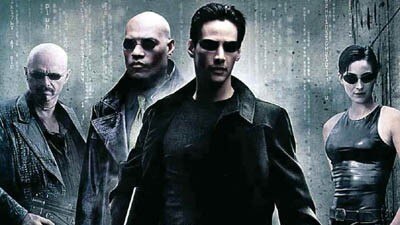
2. THE MATRIX (1999)
Here is a film that defies a central cinematic truism – it becomes more, not less, timely as it gets older. The world described in The Matrix in 1999 was a nightmarish slave planet where human beings were soulless biomass, daily jacked into a synthetic digital reality where their fake best selves were either furiously engaged or numbed out into irrelevance. This was long before the first tweet was sent, in March 2006. The film’s kung fu action was good too, as was the anime aesthetic and the beautiful vacancy of its star, Keanu Reeves. But it’s the message that continues to resonate. We’re all in the Matrix now. And we love it.
3. ALIEN (1979)
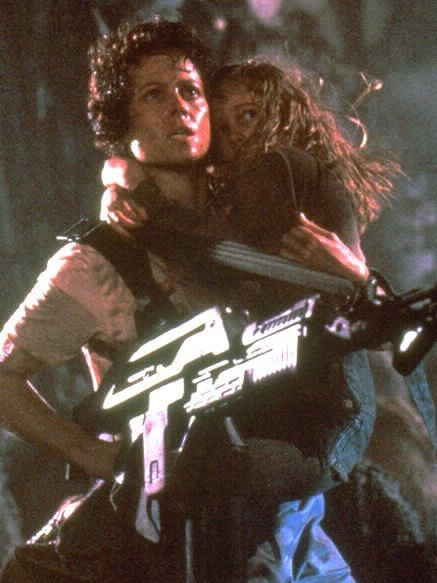
Also known as the film that Dune built. In 1975 the Chilean-French film-maker Alejandro Jodorowsky gathered together a team of creatives for a ten-hour movie adaptation of the Frank Herbert novel. After two years of pre-production and dollars 2 million spent, the project collapsed. However, the key creative team of writer Dan O’Bannon and artists HR Giger and Jean Giraud migrated over to camp Ridley (Scott), and became pivotal to the development of this definitive space horror. Giger especially, by designing the terrifying “xenomorph” title character – watch out for those “inner” jaws – ensured that the movie would live for ever in the minds of traumatised cinemagoers.
4. METROPOLIS (1927)
Yes, it’s the most influential sci-fi movie ever made. Yes, the futuristic cityscapes were copied in Blade Runner and the character of Maria the robot (Brigitte Helm) resurfaces in everything from C-3PO to the Terminator. And yes, the appropriate way to consume this socialist parable about worker exploitation is by watching the definitive 148-minute restored version from 2010. But, really, it’s hard to top the poppy 83-minute cut from Giorgio Moroder (1984). Freddie Mercury singing Love Kills as Maria the robot, sending the wealthy denizens of Metropolis into a lusty frenzy, is simply sublime.
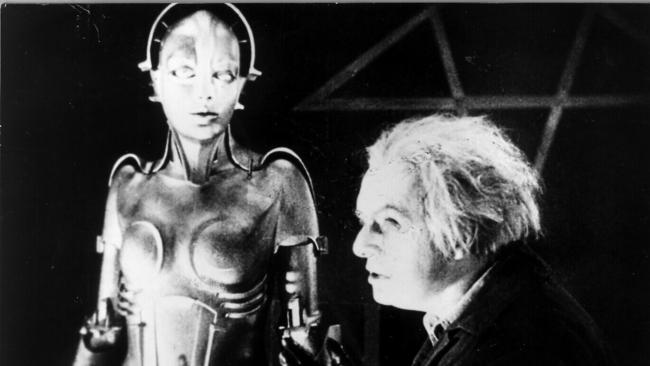
5. THE FIFTH ELEMENT (1997)
Only the French could do a space epic with Jean-Paul Gaultier bondage wear, a camp Hitler-style dictator (Gary Oldman’s Zorg) and a plot that hinges around an 11th-hour declaration of love from the emotionally constipated hero Bruce Willis. This Luc Besson classic has been divisive precisely because it has that one precious element missing from so many generic Hollywood sci-fi flicks: personality. It has tentacular opera singers, French director cameos (Mathieu Kassovitz and Maiwenn), and an absurdist romance between a cab driver (Willis) and a kick-ass fembot (Milla Jovovich). What’s not to love?
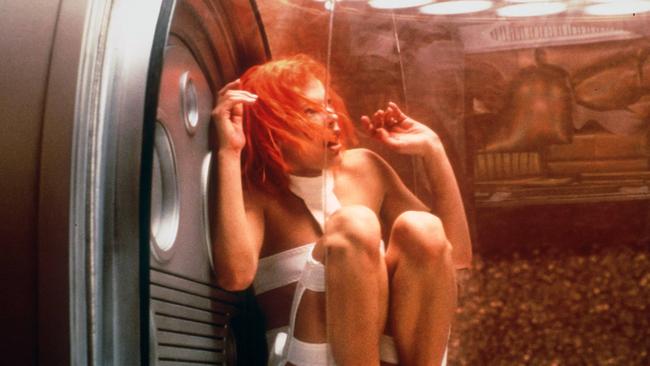
6. ET THE EXTRA-TERRESTRIAL (1982)
People misremember ET. They see it as cloying and saccharine, and defined by a cutesy alien who doles out hugs and is good at fixing finger cuts. But the reason it persists is because it belongs to the painful mess of family trauma. ET, famously, was an imaginary support system dreamt up by the preteen Steven Spielberg to cope with his parents’ divorce. In the film ET is a vessel for Elliott’s pain, and the creature’s illness and ultimate death – however brief – is the dying of Elliott’s childhood innocence. It’s a movie about cruel, cold, adult life. It’s dark.
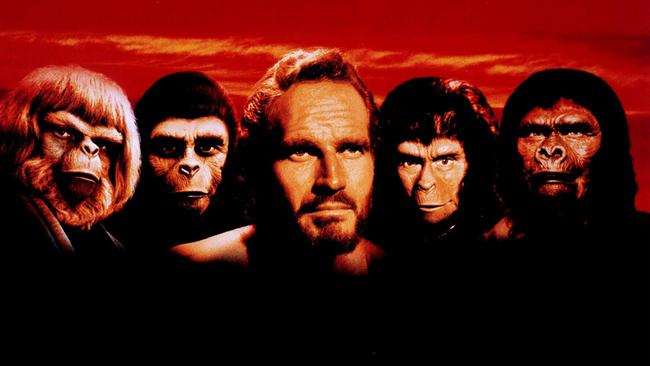
7. PLANET OF THE APES (1968)
Spoiler alert: it’s the twist, silly! Nothing else matters. Easily the greatest twist ending in cinema history. Runners up include Citizen Kane (it’s the sled!), The Sixth Sense (he’s dead!) and Fight Club (he’s both guys!). But when Charlton Heston’s ragged astronaut George Taylor finally discovers that he has been bouncing around “future earth” all along – revealed in a spine-chilling reverse shot from behind the Statue of Liberty – the moment is overwhelmingly meaningful, in the context of the narrative and the message of the movie. “You maniacs! You blew it up! God damn you all to hell!” Chills.
8. SUNSHINE (2007)
The first – and most audacious – of a contemporary wave of sci-fi films that foregrounded science facts in their fiction. Others include Christopher Nolan’s Interstellar and Ridley Scott’s The Martian. Director Danny Boyle and writer Alex Garland, through 35 drafts of the screenplay, consulted scientists and futurists while shaping their central narrative about the death of the sun. Eventually Brian Cox, professor of particle physics, was hired to lecture the cast and crew on solar physics. The result is a familiar yarn about a dangerous space mission, but one that pulses with authenticity.
9. SOLARIS (1972)
In space, no one can hear you nodding wisely with intellectual approval. Which is supposedly the reflex response to Andrei Tarkovsky’s relentlessly fascinating and sometimes highfalutin “anti-sci-fi” film. The special effects are low key, and bar some initial outdoor scenes and a single shot of a docking rocket it’s mostly a futuristic chamber piece set aboard a space station. What keeps it thrillingly alive, though, is the relationship between the psychologist Kris Kelvin (Donatas Banionis) and the ghost of his dead wife, Hari (Natalya Bondarchuk). She’s an apparition, conjured by the planet Solaris, but their relationship is gorgeously realised and achingly sad.
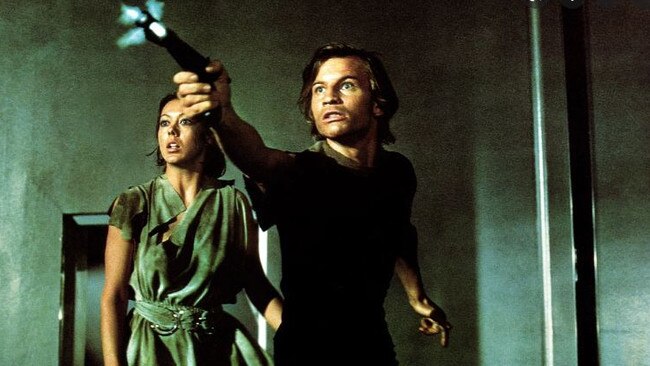
10. LOGAN’S RUN (1976)
One of the “thinky” sci-fi movies of the 1970s, inspired by the success of 2001: A Space Odyssey and Planet of the Apes, this often savagely satirical adaptation of William F Nolan’s source novel imagines a hedonistic, oversexed, youth-obsessed society where anyone who hits the age of 30 is killed in a nutty theatrical slaughter show called the Carousel. Also intriguing, and still relevant, is the film’s Tinder-style teleporting dating app, the Circuit, which is where our heroic protagonists Logan 5 (Michael York) and Jessica 6 (Jenny Agutter) meet. He clicks. She appears. He says: “You’re beautiful. Let’s have sex.” Charming.
The Times

To join the conversation, please log in. Don't have an account? Register
Join the conversation, you are commenting as Logout